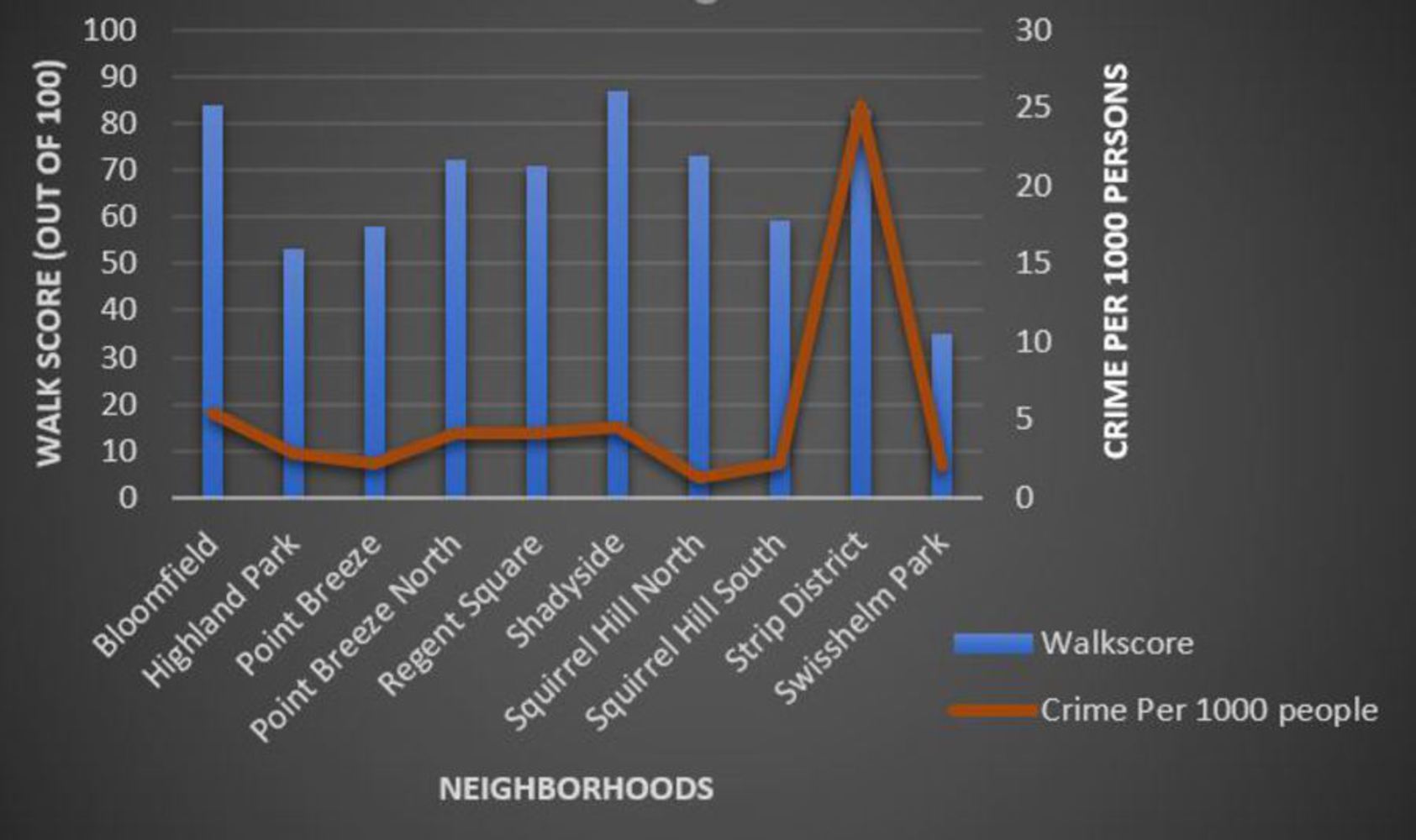Story
When you are buying a house, there are a lot of factors to be considered – price, features, aesthetics etc. While it is very important to consider all these internal house-related factors, it is equally important to look into external factors as well i.e. the neighborhood you are shifting into. This report contains such an analysis of two of the external factors – Walk score (ease of access via foot to nearest amenities) and Crime rate in ten different residential neighborhoods of Pittsburgh. The results can help us decide upon the best neighborhood to move into. There are a few assumptions that have been taken into account:
1. The buyer has enough money to buy a house in any one of the 10 neighborhoods.
2. The data sets for Walk score was per Census tract. Therefore, average value of all the Census tracts of a particular neighborhood has been considered for the analysis.
